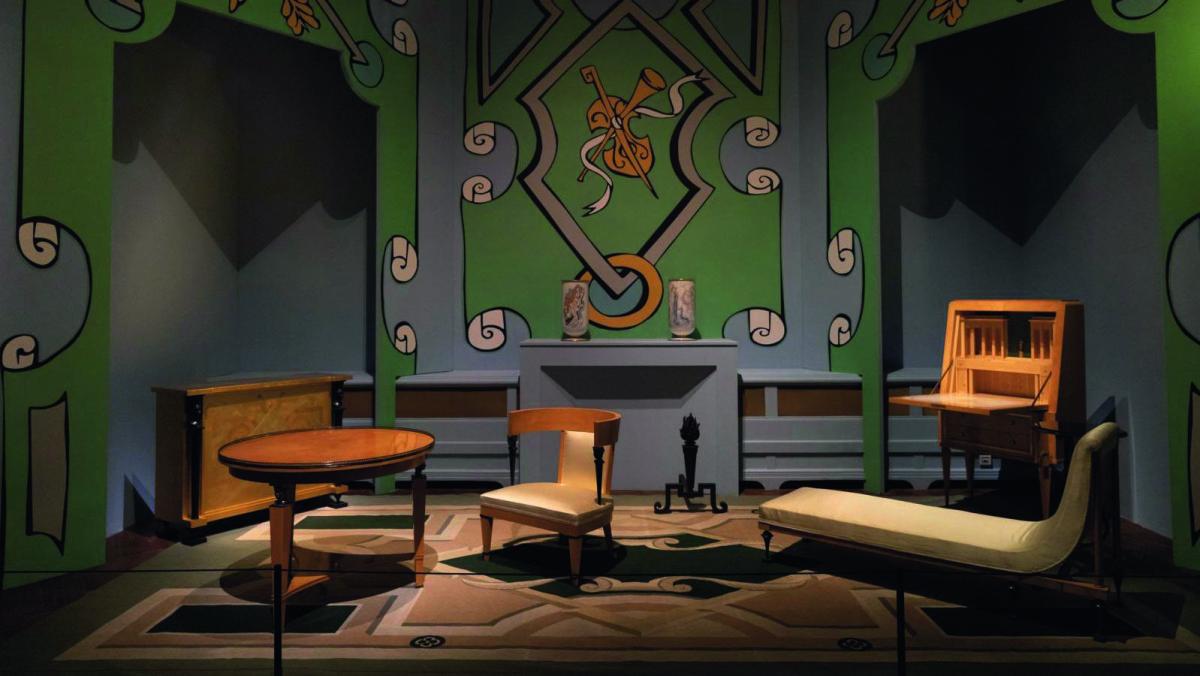

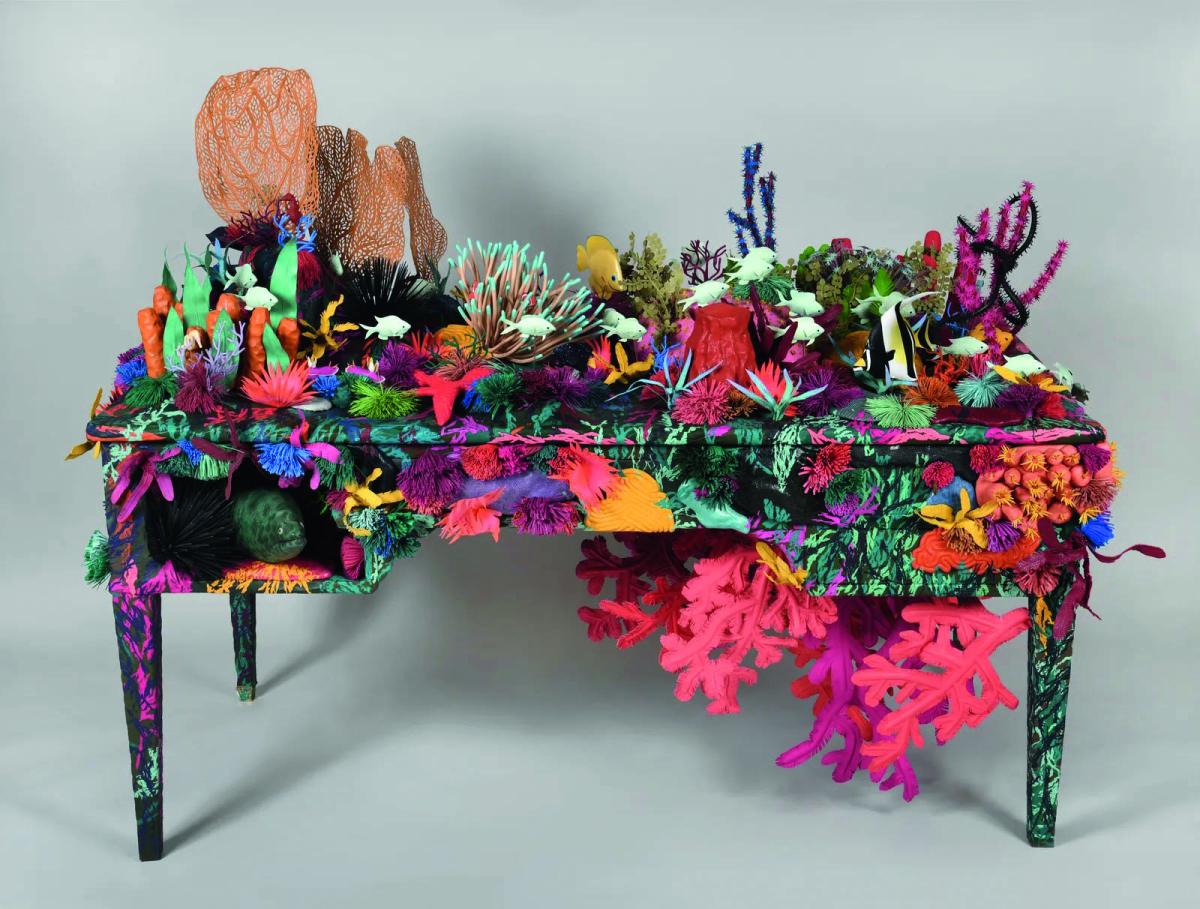
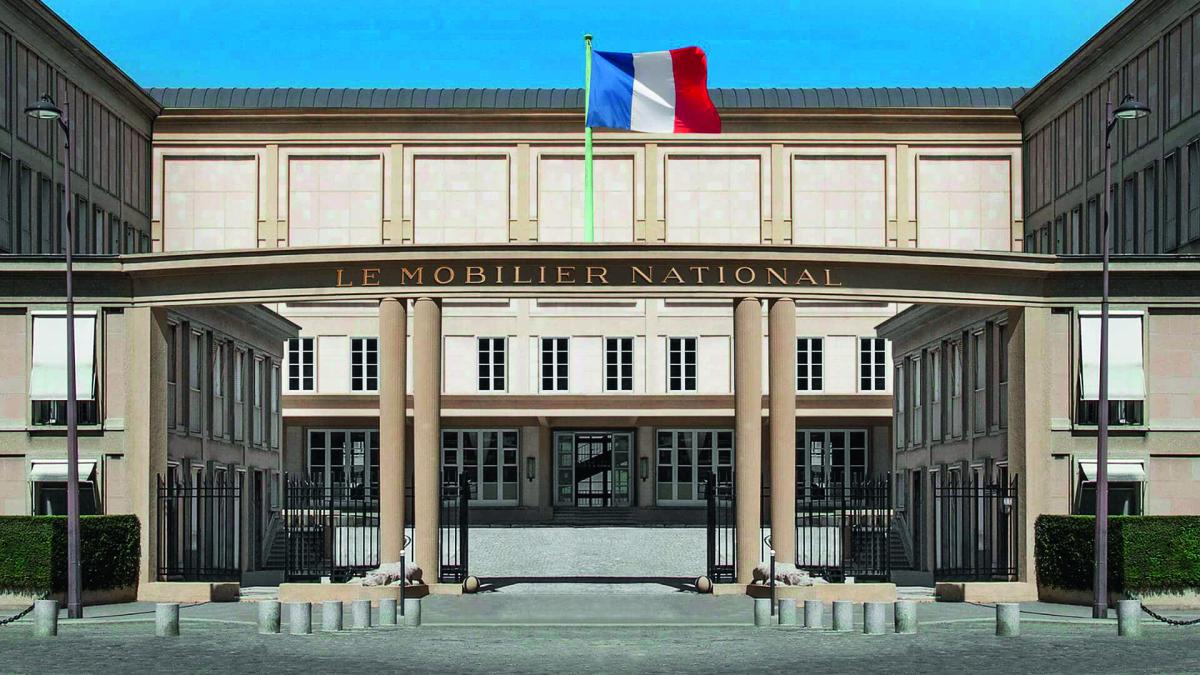
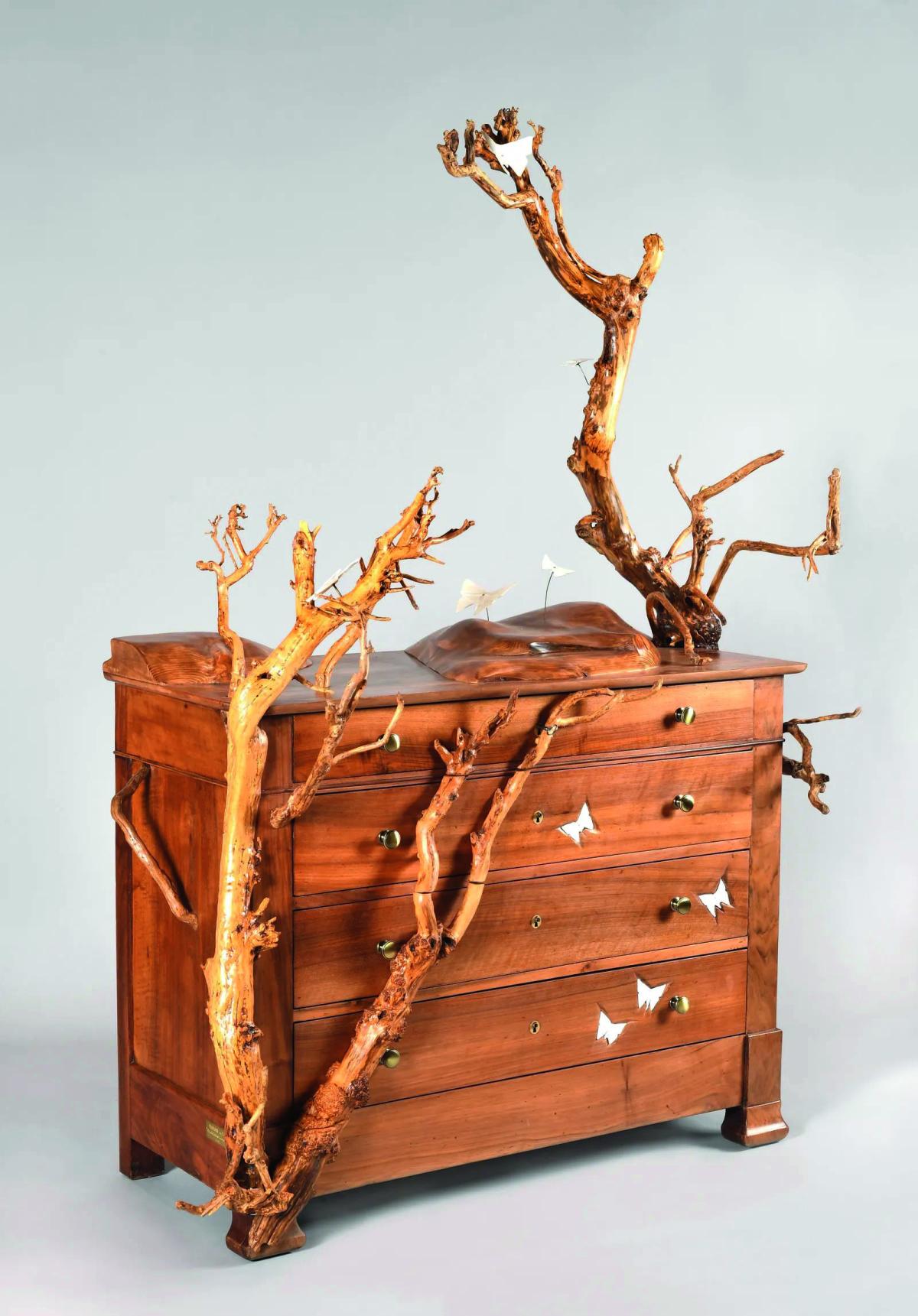
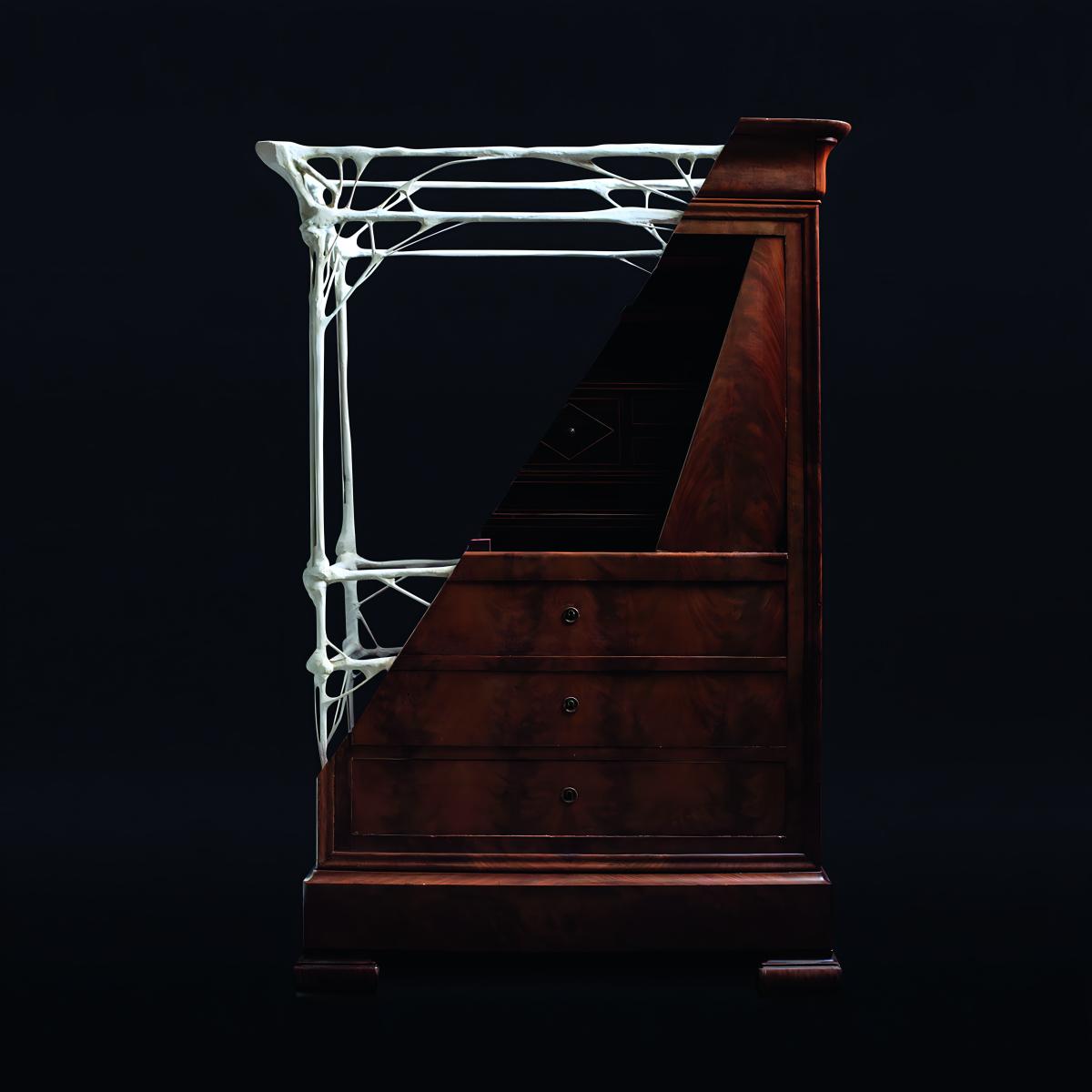
Published in Unique Estates Life Magazine Spring 2024.
For over three centuries, France's movable cultural heritage has been safeguarded by the institution "Mobilier National" (State Furniture). It inventories, restores, and preserves invaluable furniture, decorative, and textile objects, with its collections reflecting the evolution of official furnishings in France.
If we were to describe in detail the history and mission of the French institution Mobilier National ("State Furniture"), the pages of an entire magazine wouldn't suffice. For over three centuries, the Garde-Meuble royal ("Royal Furniture Storehouse"), later renamed Imperial Furniture and then State Furniture, has safeguarded, restored, and maintained more than 130,000 pieces of furniture and textile objects, destined for the furnishing of France's state institutions.
During the Ancien Régime (before the French Revolution), France had many royal residences, but only the most important ones were permanently furnished. The others were furnished upon request before the king or his entourage visited. As early as the 13th century, an organization existed that managed the furnishing of royal interiors. It inventoried all furniture owned by the king, arranged its transport and maintenance, and most importantly, was tasked with creating new pieces. This organization was institutionalized under Louis XIV and his minister Jean-Baptiste Colbert. In 1663, they created the Garde-Meuble de la Couronne ("Crown Furniture Storehouse"), whose mission was to protect and manage the vast amount of movable cultural heritage. Its history became particularly tumultuous after 1797. Napoleon I renamed it Imperial Furniture, and in 1870, after the fall of the Second French Empire, it became State Furniture. At that time, royal collections were scattered across various ministries and administrations. In the early 20th century, a special decree mandated that the most valuable pieces be stored in the Louvre. In 1959, the institution was attached to the Ministry of Culture. Under the initiative of then-Minister of Culture André Malraux, a "Research and Creative Workshop focusing on contemporary design" was created within the institution. In 1980, a decree outlined the institution's main missions, and since 2003, it has held the status of a "Nationally Significant Institution."
Today, Mobilier National preserves, restores, and maintains around 130,000 pieces of furniture and textile objects (tapestries, carpets, lace, and embroidery). It is housed in Paris in a building designed by Auguste Perret, located on the site of the Gobelins manufactory gardens. Built in 1935 specifically for the institution and its priceless collections, particular attention was given to storage conditions. The building has triple-thick walls and roof, and double-glazed windows to minimize temperature variations inside. Natural light is directed to showcase the objects in the best possible way or facilitate the work of restorers.
The institution's collections, dispersed across approximately 600 interiors, mainly consist of furniture commissioned for major state residences, reflecting the evolution of official French furnishings from the 17th century to the present. They are divided into three main categories: cultural heritage objects primarily displayed in palaces and castles; valuable cultural items used to furnish state residences; and decorative objects. Seven specialized workshops (wood, metal, textiles, etc.) ensure the maintenance of the items. Integral to the institution are the Gobelins and Beauvais manufactories (tapestries), Savonnerie (carpets), and the Puy-en-Velay and Alençon lace workshops.
One of the primary missions of Mobilier National is to ensure the decoration and furnishing of state institutions and residences under the aegis of the President of the Republic and the Prime Minister. It maintains and restores the furniture and objects belonging to the collections, perpetuates traditional craft techniques and mastery related to restoration, furniture production, and decoration. The institution also develops new techniques and materials and provides professional training for future specialists. It establishes partnerships with art schools and undertakes various activities to promote its collections, such as organizing exhibitions and publishing articles, books, and research.
The institution relies on various organizations for advice regarding its scientific and strategic missions. These include the Commission for the Control of State Furniture, the Advisory Commission for Project Acquisitions, the Commission for Professional Certification under the Ministry of Labor, and the Scientific Council.
The mission of all these state structures is to promote contemporary design and creativity in France. For this purpose, the "Research and Creative Workshop" was established, symbolizing avant-garde French design and innovation in form and technique. Designers such as Pierre Paulin, Andrée Putman, Christophe Pillet, and Olivier Gagnère have worked with the workshop. Over 600 prototypes have been produced in collaboration with more than a hundred creators. Notable recent acquisitions include desks designed by Matali Crasset and Noé Duchaufour-Lawrance for the Minister of Culture’s office, Christian Ghion's carbon fiber desks for Aéroports de Paris offices, and the "Wooden Curtain" cabinet by Philippe Nigro.
Some pieces in the institution's collection are in such poor condition (too old, unused for a long time, or poorly stored before being acquired) that they are beyond restoration. In such cases, they are "deaccessioned"—sold, used as material in restorations, or even destroyed. In 2022, Mobilier National gave these pieces to contemporary artists who transformed them into works of art. The exhibition was a great success, and in 2023, a second edition was organized. It featured 53 furniture items reinterpreted by 39 artists, who had complete freedom to express their vision. The goal of the exhibition was to return the furniture to the Mobilier National collections with added artistic value, transforming them into original works.
Mobilier National is one of the founders of the Campus d’Excellence des Métiers d’Arts et du Design (Campus of Excellence in Creative Professions and Design). Supported by the Paris School of Decorative Arts, it stems from a shared desire to use France's remarkable heritage of craftsmanship and artistry. The institution seeks to promote specialized schools, support creative industries, foster partnerships with professionals, foundations, and institutions, and encourage research and innovation. In this way, Mobilier National and other organizations dedicated to preserving France’s furniture heritage maintain and recreate what we recognize as the unique French chic in interior design.